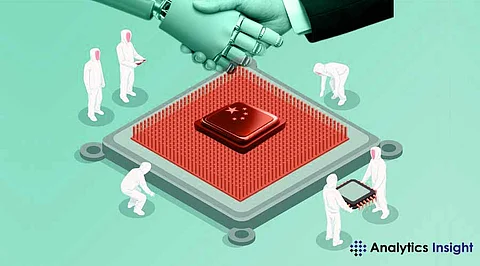

What’s New Today: China's New Chip Revolutionizes Radiation Detection
Fast-Track Insights: Hyundai Partners with Google for Smarter Infotainment
Here’s a quick rundown of the biggest tech headlines making waves today. From the China's New Chip ESIC Walk-In Recruitment 2024, let’s dive into the top tech stories of the day.
China National Nuclear Corporation (CNNC) has unveiled a revolutionary radiation detection chip, advancing the country's semiconductor self-reliance. The compact chip (15mm x 15mm x 3mm) monitors radiation doses from 100 nanoSievert/hour to 10 milliSievert/hour and detects radiation energies between 50 keV and 2 MeV, covering X-rays and gamma rays. Despite consuming just 1 milliwatt, its sensitivity rivals traditional Geiger-Muller counters. CNNC has begun mass production, aiming for diverse applications, including nuclear workplaces, environmental safety, and consumer devices like smartphones and drones. This innovation aligns with China’s strategy to overcome U.S. trade restrictions and achieve technological self-reliance.
Hyundai Motor Group has partnered with Google to enhance its vehicle infotainment systems. Google will provide software, including advanced navigation, integrated into Hyundai’s vehicles via Android Automotive OS. This collaboration aims to improve geolocation services and elevate Hyundai's technological offerings, starting with luxury models like Genesis and upcoming electric vehicles, including the Creta EV. Hyundai plans to launch the Creta EV in India by January 2024, competing with models like Tata Nexon and Toyota Urban Cruiser EV. This partnership aligns with Hyundai's strategy to strengthen its market position amid rising demand for electric vehicles in India.
ESIC Recruitment 2024 invites applications for 19 Senior Resident, Specialist, and Super Specialist posts via walk-in interviews on December 18, 2024. Eligible candidates must meet age and qualification criteria, including MBBS, PG degrees, or super-specialty credentials. Senior Residents should not exceed 45 years, while Specialists and Super Specialists have a limit of 69 years. Selection is based on interviews, with no TA/DA provided. Salaries range from ₹60,000 to ₹2,40,000 per month, depending on the role and experience. Contracts vary from 1 to 3 years, renewable annually based on performance. Candidates must carry original documents and report on time.
Owing to the rapid development of artificial intelligence (AI) has enhanced the generation of content the issue of creation replacement has emerged. As we see, with an increase in effectiveness and scalability of AI-driven approaches, the issues of authorship, authenticity and the place of human-inspired creativity in such areas arise.
Cybercriminals are increasingly targeting cryptocurrency traders engaged in peer-to-peer (P2P) transactions to launder stolen money. Fraudsters approach traders with offers to buy cryptocurrency using funds linked to various scams, such as loan application fraud and OTP fraud. One Bengaluru-based trader, Mohammad Ismail, shared his experience of unknowingly receiving stolen money for a P2P transaction, which led to an investigation by Gujarat police. Experts highlight that converting stolen money into cryptocurrency provides criminals with a safer way to launder funds, particularly in crypto-friendly countries like Dubai. Police advise traders to conduct thorough background checks to avoid falling victim to such scams.
